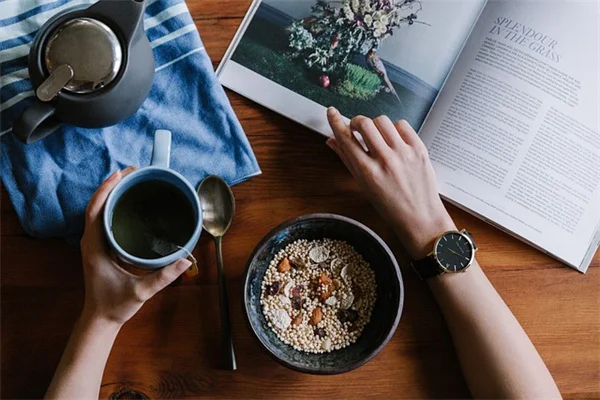Can gut bacteria cause IBS? The answer is: Yes, your gut microbiome likely plays a key role in IBS symptoms. Recent research shows that people with irritable bowel syndrome have significantly different gut bacteria compared to healthy individuals. In fact, scientists identified 21 specific bacterial species that differ between IBS patients and those without digestive issues.Here's what's fascinating: your gut contains about 100 trillion microorganisms that help with digestion, immunity, and even mood regulation. When this delicate balance gets disrupted (what doctors call gut dysbiosis), it can trigger those uncomfortable IBS symptoms you're familiar with - bloating, abdominal pain, and irregular bowel movements.I know what you're thinking: But how exactly does this work? While we don't have all the answers yet, studies suggest these bacterial changes might contribute to inflammation and altered gut function. The good news? Unlike your genes, you can actually influence your gut bacteria through diet and lifestyle changes. Stick with me as we dive deeper into this fascinating gut-IBS connection and what you can do about it.
E.g. :Breakthrough Reversible Blood Thinner: How This New Anticoagulant Works
- 1、Your Gut Bacteria and IBS: What’s the Connection?
- 2、How Gut Bacteria Influence Your Digestive Health
- 3、Why Bacterial Diversity Matters for IBS
- 4、Practical Steps to Support Your Gut Health
- 5、The Future of IBS and Gut Bacteria Research
- 6、The Hidden World of Gut Bacteria: More Than Just Digestion
- 7、Gut Health Across Cultures: What We Can Learn
- 8、Beyond Probiotics: Cutting-Edge Gut Health Solutions
- 9、Your Daily Gut Health Checklist
- 10、Gut Health Myths Debunked
- 11、FAQs
Your Gut Bacteria and IBS: What’s the Connection?
Meet Your Gut’s Tiny Roommates
Picture this: trillions of microorganisms throwing a non-stop party in your digestive tract. This is your gut microbiota – the mix of bacteria, viruses, and fungi that actually help you digest food, absorb nutrients, and even fight off infections. Pretty cool, right?
Now here’s where things get interesting. A recent Korean study found something surprising about these microscopic party-goers. When their balance gets disrupted (doctors call this "gut dysbiosis"), it might trigger irritable bowel syndrome (IBS) symptoms like abdominal pain, diarrhea, or constipation. But how exactly? Let’s break it down.
The IBS-Gut Bacteria Link: What We Know
Researchers compared gut bacteria in two groups:
| Group | Number of Participants | Key Finding |
|---|---|---|
| Children with IBS | 19 | IBS patients had 21 different bacterial species compared to healthy individuals |
| Healthy Children | 24 | |
| Adults with IBS | 567 | IBS patients showed significantly lower microbiota diversity |
| Healthy Adults | 487 |
Dr. Sean Spencer from Stanford puts it perfectly: "The microbiota in IBS patients looks completely different from healthy people." But here’s the million-dollar question: Are these bacterial changes causing IBS, or are they just along for the ride?
We don’t have all the answers yet, but one thing’s clear – when your gut bacteria get out of whack, your digestive system definitely notices. Think of it like an orchestra where some instruments are playing too loud while others go silent. The result? A symphony of digestive discomfort.
How Gut Bacteria Influence Your Digestive Health
 Photos provided by pixabay
Photos provided by pixabay
The Chicken or the Egg Dilemma
Here’s something that might surprise you: Your gut bacteria might be influencing your digestion more than you realize. But does bad bacteria cause IBS, or does IBS create bad bacteria? It’s like asking whether the chicken or the egg came first – scientists are still figuring this out.
Consider this real-life example: Many IBS patients develop symptoms after a nasty stomach bug. The infection leaves their gut ecosystem changed, potentially triggering ongoing inflammation and microbiome changes. But here’s the kicker – some people develop IBS without any obvious trigger. Makes you wonder, doesn’t it?
What Shapes Your Gut Microbiome?
Your gut bacteria are shaped by:
- What you eat (that midnight pizza snack counts!)
- Your genes (thanks mom and dad)
- Medications (especially antibiotics)
- Even how you were born (vaginal vs. C-section delivery)
Dr. Arik Alper from Yale explains it like this: "Your gut is like a delicate ecosystem. Change one thing, and it can create ripple effects throughout your entire digestive system." So when your bacteria get out of balance, your gut definitely lets you know – often in uncomfortable ways.
Why Bacterial Diversity Matters for IBS
The More the Merrier
Here’s a fun fact: A diverse microbiome equals a healthy gut. Nearly all digestive disorders, including IBS, show lower bacterial diversity. But here’s the good news – your microbiome can change!
Want to boost your gut diversity? Try these science-backed tips:
- Eat fermented foods (yogurt, kimchi, sauerkraut)
- Load up on fiber (your gut bacteria love it)
- Go easy on processed foods
But wait – before you jump on the latest elimination diet trend, hear this: Drastic diet changes can shock your microbiome. As Dr. Alper warns, "We’re still learning about the risks and benefits of extreme dietary changes."
 Photos provided by pixabay
Photos provided by pixabay
The Chicken or the Egg Dilemma
Absolutely! While we can’t say exactly what a "perfect" microbiome looks like, we know diversity is key. Think of your gut like a garden – the more varieties of plants (or bacteria) you have, the healthier it tends to be.
Here’s something to chew on: Did you know your gut bacteria can influence your mood? That’s right – there’s growing evidence that your microbiome might affect everything from digestion to mental health. Talk about mind-blowing!
Practical Steps to Support Your Gut Health
Foods That Love Your Gut Back
Want to be a good host to your gut bacteria? Try these microbiome-friendly foods:
- Prebiotics: Garlic, onions, bananas (they feed good bacteria)
- Probiotics: Yogurt, kefir, kombucha (they add good bacteria)
- Polyphenol-rich foods: Dark chocolate, green tea, berries
Remember that study about fermented foods? Participants who ate more fermented foods saw their microbiome diversity increase in just 10 weeks! Now that’s what I call fast food.
When to See a Doctor
If you’re experiencing persistent digestive issues like:
- Chronic abdominal pain
- Major changes in bowel habits
- Unexplained weight loss
It might be time to consult a gastroenterologist. They can help determine if what you’re experiencing is IBS or something else entirely.
The Future of IBS and Gut Bacteria Research
 Photos provided by pixabay
Photos provided by pixabay
The Chicken or the Egg Dilemma
Researchers are currently exploring:
- Specific bacterial strains that might trigger IBS
- How different bacteria interact with our digestive system
- Personalized probiotic treatments
As Dr. Spencer puts it, "Understanding these bacterial interactions could revolutionize how we diagnose and treat IBS." That means better, more targeted treatments might be coming down the pipeline.
Your Gut’s Amazing Potential
Here’s something truly exciting – your microbiome can change throughout your life. Unlike your eye color or height, you actually have some control over your gut bacteria. That means every healthy choice you make for your gut today could pay off tomorrow.
So the next time your stomach rumbles, remember – it’s not just hunger. It’s trillions of microscopic friends having a conversation about your health. And with the right care, you can help keep that conversation running smoothly.
The Hidden World of Gut Bacteria: More Than Just Digestion
Your Gut's Secret Superpowers
Did you know your gut bacteria do way more than just help digest food? These microscopic helpers actually produce vitamins like B12 and K, which your body can't make on its own. That's right - those tiny organisms in your belly are basically running a vitamin factory!
Here's something even wilder - your gut bacteria communicate with your brain through something called the gut-brain axis. Ever get "butterflies" when nervous? That's your gut talking! Scientists now believe this connection might explain why so many IBS patients also experience anxiety or depression. It's like having a group chat between your stomach and your brain that never stops buzzing.
The Antibiotic Paradox
We've all taken antibiotics when sick, but here's the kicker - while they kill bad bacteria, they wipe out good ones too. Did you know a single course of antibiotics can alter your gut microbiome for up to a year? That's why many people experience digestive issues after antibiotic treatment.
Let me share a personal story. My cousin Jake took antibiotics for strep throat last winter, and for months afterward he struggled with bloating and irregular bathroom trips. His doctor explained that the medication had disrupted his gut balance. It took probiotic foods and patience, but eventually his system bounced back. The moral? Those little bacteria are tougher than they look!
Gut Health Across Cultures: What We Can Learn
Global Gut Wisdom
Different cultures have been nurturing gut health for centuries without even knowing about microbiomes. Take these fascinating examples:
| Culture | Traditional Food | Gut Health Benefit |
|---|---|---|
| Japanese | Miso soup | Fermented soy provides beneficial bacteria |
| Indian | Yogurt-based drinks (lassi) | Probiotics + digestive spices like ginger |
| German | Sauerkraut | Natural fermentation creates gut-friendly compounds |
What's really cool is how these traditional foods align perfectly with modern microbiome science. Grandma's remedies were onto something! Maybe we should all take a page from these cultural playbooks when it comes to feeding our gut buddies.
The Modern Diet Dilemma
Here's a sobering fact - the average Western diet is basically fast food for bad bacteria. Processed foods, artificial sweeteners, and lack of fiber create the perfect storm for gut imbalance. "We're feeding the wrong microbial guests at the party," as my nutritionist friend likes to say.
Think about it - our ancestors ate 100+ different plants weekly, while many of us barely hit 20. No wonder our guts are confused! But before you panic, remember - every small change helps. Even adding one new vegetable to your weekly grocery list gives your microbiome something new to munch on.
Beyond Probiotics: Cutting-Edge Gut Health Solutions
Prebiotics - The Unsung Heroes
Everyone talks about probiotics, but prebiotics are just as important. These special fibers act like fertilizer for your good bacteria. Great sources include:
- Jerusalem artichokes (the weird-looking root vegetable)
- Dandelion greens (yes, those yard weeds!)
- Raw garlic (great for gut health, not so great for first dates)
Here's a fun experiment - try eating more prebiotic foods for a week and notice any changes in digestion. Many people report less bloating and more regular bathroom visits. Your gut bacteria will thank you!
The Fecal Transplant Frontier
Now for the gross-but-fascinating part - fecal microbiota transplants (FMT). Yes, it's exactly what it sounds like - transferring healthy bacteria from a donor's stool to a patient's gut. While currently FDA-approved only for C. difficile infections, researchers are studying FMT for IBS too.
Before you get squeamish, consider this - the procedure has helped people with severe gut infections when nothing else worked. The science is still new, but it shows how seriously researchers now take our microbial friends. Who knew poop could be medicine?
Your Daily Gut Health Checklist
Small Changes, Big Impact
Want to keep your gut happy without overhauling your life? Try these simple daily habits:
- Chew food thoroughly (digestion starts in your mouth!)
- Stay hydrated (water helps everything move smoothly)
- Manage stress (deep breathing helps calm gut-brain chatter)
- Move regularly (even walking aids digestion)
Remember, Rome wasn't built in a day, and neither is a healthy microbiome. Consistency beats perfection every time when it comes to gut health. Start with one change this week and build from there.
When Supplements Can Help
While food should come first, sometimes supplements give your gut extra support. Consider these if recommended by your doctor:
- High-quality probiotics (look for multiple strains)
- Digestive enzymes (for occasional bloating)
- L-glutamine (helps repair gut lining)
But buyer beware - the supplement aisle can be overwhelming. Not all probiotics are created equal, and some might not survive your stomach acid to reach your gut. When in doubt, ask a healthcare pro for guidance.
Gut Health Myths Debunked
The Truth About "Cleanses"
Juice cleanses and detox teas flood social media, but here's the reality - your gut doesn't need "cleansing". Your liver and kidneys handle detox just fine, thank you very much. In fact, extreme cleanses can starve your good bacteria and make gut issues worse.
Instead of drastic measures, think of nurturing your microbiome like tending a garden. You wouldn't flood plants with harsh chemicals - you'd give them quality soil, water, and sunlight. Same goes for your gut - consistent, gentle care works better than quick fixes.
The Gluten-Free Bandwagon
Unless you have celiac disease or gluten sensitivity, going gluten-free might do more harm than good for your gut. Did you know many gluten-free products lack the fiber that feeds good bacteria? Whole grains actually contain prebiotics that support microbiome diversity.
I learned this the hard way when my gluten-free phase left me constipated and bloated. Turns out, my gut missed the whole wheat! Now I enjoy gluten in moderation while focusing on overall diet quality. Moral of the story? Don't fix what isn't broken.
E.g. :Irritable Bowel Syndrome and the Gut Microbiome: A ...
FAQs
Q: How does gut bacteria affect IBS symptoms?
A: Your gut bacteria directly influence IBS symptoms in several ways. First, they help break down food and produce important compounds like short-chain fatty acids that nourish your gut lining. When the balance is off, this process gets disrupted, potentially leading to inflammation and sensitivity. Second, certain "bad" bacteria can produce gases and toxins that irritate your digestive system, causing bloating and pain. We also know that gut bacteria communicate with your nervous system through the gut-brain axis, which might explain why stress often triggers IBS flare-ups. The key takeaway? Maintaining a diverse, balanced microbiome is crucial for managing IBS symptoms.
Q: What are the signs of an unhealthy gut microbiome?
A: Your body sends clear signals when your gut bacteria are out of whack. The most obvious signs include frequent digestive issues like gas, bloating, diarrhea, or constipation - classic IBS symptoms. But here's something surprising: other signs might include fatigue, food cravings (especially for sugar), unintentional weight changes, and even skin problems like acne or eczema. Many people don't realize that about 70% of your immune system lives in your gut, so frequent colds or infections might also indicate microbiome issues. If you're experiencing several of these symptoms regularly, it might be time to focus on improving your gut health.
Q: Can improving gut bacteria cure IBS?
A: While we can't say for sure that fixing your gut bacteria will completely cure IBS, research shows it can significantly improve symptoms. Studies demonstrate that people who increase their microbiome diversity through dietary changes often experience less bloating, more regular bowel movements, and reduced abdominal pain. The approach that works best is usually multifaceted: eating probiotic-rich foods to introduce beneficial bacteria, consuming prebiotic fibers to feed good bacteria, and avoiding things that harm your microbiome (like excessive antibiotics or processed foods). Remember, everyone's gut is unique, so what works for one person might not work for another - it's about finding your personal balance.
Q: What foods help restore healthy gut bacteria?
A: These powerhouse foods can help rebuild your gut microbiome: Fermented foods like yogurt, kefir, sauerkraut, and kimchi contain live beneficial bacteria. High-fiber foods including oats, bananas, and asparagus act as prebiotics - fertilizer for your good gut bugs. Polyphenol-rich foods like dark chocolate, green tea, and berries also support microbial diversity. A recent Stanford study found that people who ate 6 servings of fermented foods daily for 10 weeks significantly increased their microbiome diversity and reduced inflammatory markers. Start small if these foods are new to you - even adding one serving per day can make a difference over time.
Q: How long does it take to improve gut bacteria for IBS relief?
A: Here's the honest truth: there's no one-size-fits-all timeline for improving your gut microbiome. Some people notice positive changes in as little as 2-4 weeks of consistent dietary improvements, while others might need 3-6 months to see significant IBS symptom relief. Factors like how long you've had digestive issues, your current diet, and your unique microbiome composition all play a role. The key is consistency - your gut bacteria need regular "feeding" with the right foods to maintain balance. Think of it like tending a garden: you wouldn't expect plants to grow overnight, but with regular care, you'll eventually see the results.



Discuss